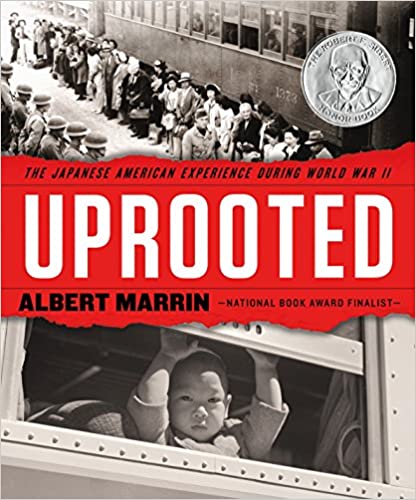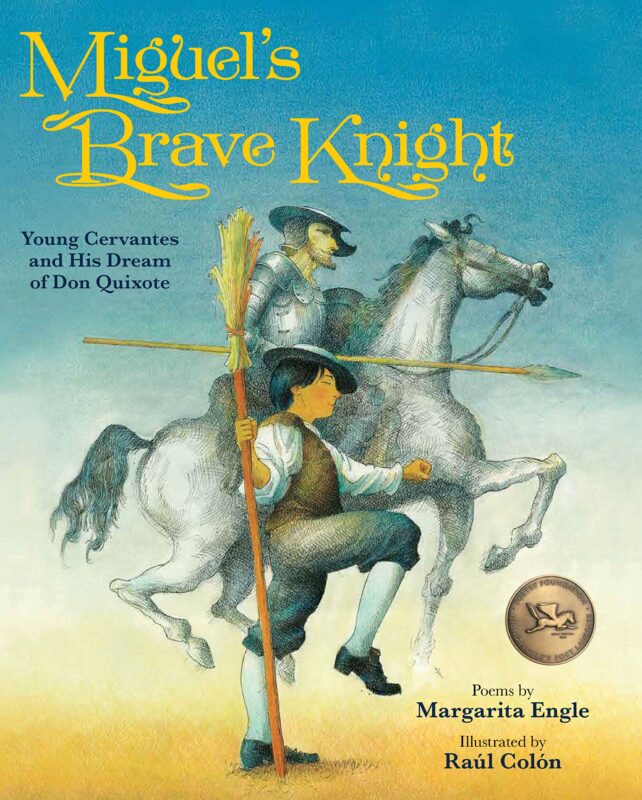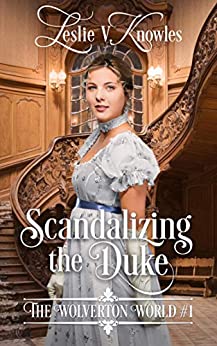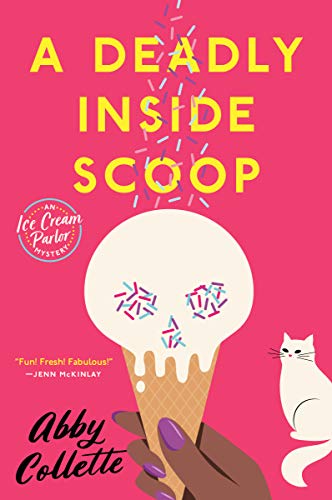Options
February 10, 2025 by Tari Jewett in category Writing tagged as indie publishing, pay to publish, publishing, traditional publishing, writingAs writers, we’re living in such an interesting time. There are more opportunities to publish our work, than ever before. But, because of this there’s also more competition in the marketplace, and there’s more opportunity to be taken advantage of, so it’s important to educate ourselves.
I wanted to talk about the three best known ways to publish, traditional publishing, pay to publish, and indie publishing.
Traditional publishing
This used to be the dream of nearly every book author, and still is for many. To find a traditional publisher, preferably one of The Big Five, New York publishers to buy your work and publish it for you. There weren’t many publishing options, and this was the way.
Authors would submit their work, sometimes to the few publishers that would take unsolicited work from unpublished, unrepresented authors. It would end up in a slush pile, where the author hoped it would catch the eye of an editor, or maybe junior editor, who would send the book up the chain of command until the author either received an acceptance, a rejection with notes, or the hardest one to take, a form rejection. Did I say all of that past tense? This is still a valid way to submit your work.
Along the same lines, an author can (and could previously) submit their work to an agent, who would then submit the book to editors looking for this type of work. Having an agent gives/gave you a little more of an edge in the game.
There have always been smaller presses and boutique publishers to submit your work to for traditional publishing.
When you traditionally publish, you don’t pay money to publish your work. You sign a contract giving rights to your work to the publisher. They provide an editor, a cover, price and distribute your book. In general, you’ll still do your own marketing, although some publishers help with this. You’ll receive royalties on your book sales. Depending on the publisher, you’ll have less input into your cover, and the editing of your book. The publisher is in control until you get your rights back.
Pay to Publish
Depending on your goals, pay to publish, often called vanity press publishing, has been an option for a very long time. Pay to publish is exactly what it says. You pay the publisher based on a package you purchase. You may or may not give up rights to the publisher. They choose the editor and generally the cover for you. Sometimes they also take a percentage of your book sales and pay you royalties, even though you’ve paid up front.
If you choose to publish this way, you need to do your due diligence. There are both reputable and not so reputable publishers out there, so it’s important to do your research and be sure that you’ll be happy with the outcome.
Indie Publishing/ Self-Publishing
I tend to call it indie publishing or independent publishing, because well, back in the day Pay to Publish, was often called self-publishing. But since the advent of e-publishing, self-publishing…or indie publishing is a different way to publish. You write the book. You hire an editor. You create or pay for a book cover. You format…or have the book formatted. You distribute to book retailers of your choice. You do all of the marketing. You become not just an author, but a publisher.
Indie publishing is a lot of work, but you make all of the money and have total control of your product.
Which way is the best way to publish your work? I think it depends on your goals, what you write, and sometimes who your reader is. Personally, I’m a hybrid author. My last book, Love and Mud Puddles was published with The Wild Rose Press, and I love my publisher, and hope to publish more books with them. I also indie published my series #HermosaForTheHolidays, and plan on continuing to indie publish. I’ve learned so much about my writing process, publishing, and professionalism through both experiences.

Having choices gives us more opportunity, but it also means more responsibility and more decisions.
Are you a published author? What paths have you taken on your journey and what have you learned from them? If you’re not yet published, do you know which way you want to go and why?
0 0 Read moreCelebrating Two Months of Mac and Cheese in Outer Space
January 15, 2025 by Renae Wrich in category Writing tagged as Childrens Lit, new release, writingHello, dear readers! I am beyond thrilled to share the overwhelmingly positive reception of my book, Mac and cheese in Outer Space, since its release just two months ago. The journey of bringing this story to life was a labor of love, and seeing it resonate with so many has been nothing short of a dream come true.
From the heartfelt reviews to the kind words shared on social media, the support and enthusiasm have been truly humbling.

So what comes next? My daughters have already determined the setting for my next Mac and Cheese book, and let’s just say that I decided it would require some much needed research. 🌴 🏖️ (Especially when the weather in Minnesota is a balmy 3-degrees as I write this).
Thank you for all the support of Mac and Cheese in Outer Space!
With gratitude and excitement,
Renae
Once upon a story… never gets easier and why I’d rather be cleaning the bathroom by Jina Bacarr
January 11, 2025 by Jina Bacarr in category Jina’s Book Chat, Writing tagged as Jina's book chat, romance', writing, writing historicals, writing tips
.————–
We live in a world of instant communication. Instant oatmeal… instant noodle cups and instant coffee. Pods, anyone? (God help me, I refuse to succumb to the latter.)
But there’s no such thing as instant book writing. Instant brilliant idea, yes. A wonderful story can come to you in a flash, but writing the dang thing can be pure terror.
It never, I repeat, never goes according to plan and it’s times like that I’d rather clean the bathroom. Your characters complain about everything. Their age, weight, hair color (blond, anyone?). And if you write historicals, you can’t change dates because your heroine wants you to, new characters pop up and you can’t get rid of them, and oh, getting everyone’s names, you feel like the old woman in the shoe naming her brood. Characters complain about that, too.
So, why do we do it? I’m on a merry go round with my latest Paris WW2 novel. Finding the focus, etc. I’ve wanted to get off several times but something keeps me hanging on.
What is it? Not sticky glue.
No, because this is a story that must be told. A brave circus queen who rescued children from the Nazis while flying fifty feet up on the trapeze in Occupied Europe. I know where I’m going, finally, but getting there is hell. That’s where craft comes in.

So here are my 6 Helpful Tips for Historical Writers:
1 — Take a break. Read a book that’s NOT for research. Your brain will love you.
2 — Call a friend. Writer-friendly. Someone who ‘gets it’ when you lament your hero ‘won’t open up and tell you his secrets.’
3 — Butt in chair and write ANYTHING that comes into your head related to your story. Some of mty best stuff comes from that. Don’t be afriad it will sound dumb. It’s called ‘editing’ to get the best stuff out of it.
5 — Meditate with your heroine — go into deep pov with her, who she is, what she wants more than anything, what she swears she’ll never do and then make her do it.
6 — Be flexible. Are you writing in the right time for your story? Are you trying to cover too much time in your story? History is fascinating but figure out the core of your story. You may have to adjust the year or era. Yes, it’s a pain, but you’ll be happier without the pressure of trying to make the shoe ‘fit’ when it never will.
It’s taken me a while, but yes, I feel good about my story. I shall leave cleaning the bathroom to next week… the week after maybe? Back to writing… with a smile on my face and the toilet brush back in its proper holder.
And oh, I bought fresh coffee for tonight’s writing session. Real coffee. Gelson’s Columbian brew I got on sale. Now that’s what I call ‘heavenly’ inspiration.
===================
My latest 2 book series about PARIS WW2:

2 sisters at war with the Nazis… and each other https://www.kobo.com/gb/en/ebook/sisters-at-war-2
from BoldwoodBooks
In my story Justine is the victim of sexual assault by the SS. ‘Sisters at War’ explores wartime sexual assault and how it affects the lives of Justine and Eve Beaufort in Wartime Paris.
——————–
I drew on my own experiences when I started a series of historical novels set in Wartime Paris about the brave women who fought in the French Resistance.
Who are the Beaufort Sisters?
They’re beautiful
They’re smart
They’re dangerous
They’re at war with the Nazis… and each other.

Birthday Wishes
November 30, 2024 by Dianna Sinovic in category Columns, Quill and Moss by Dianna Sinovic, Writing tagged as holiday story, short fiction, writing
Today was her birthday, but her closest friends were busy, so Nicole took herself out to dinner. The Purple Potted Plant was her favorite restaurant for special occasions, and this year qualified as one: her fortieth.

She tamped down the urge to feel self-pity. She had no one to join her to mark the date; her ex certainly wouldn’t, and apparently, no friends felt strongly enough to share a birthday meal with her.
The waitstaff showed her to a table that overlooked a bustling street in Doylestown. Her birthday coincided with the start of the holiday season, and already giant, fake snowflakes hung from the lamp posts. They were another reminder that she needed to make plans soon to avoid being alone at Christmas. Daniel, her ex, would be with his new wife and their three-year-old.
Pulling herself back to the present, Nicole studied the menu. The chicken looked tempting, but the gnawing in her midsection was for something more than food. This milestone year was just the latest in a life she’d spent wondering who she really was. Adopted at as an infant, she had no memory of her biological mother. She craved details—any details. But the woman she called mother, the woman who’d raised her, had no interest in that.
“Isn’t it enough that you’re here, loved by us?” Brenda had said when Nicole begged her to tell what she knew. “No need to dig up a painful past.”
Nicole placed her order and asked for a glass of pinot grigio. Staring out the window, she watched the passersby, envious that they all had places to go. The swish of a moving chair drew her attention back to the table.
“Mind if I join you?” An older woman in a tailored, cloth coat stood there. “You seem like you could use a friendly smile.”
Taken aback at the woman’s forwardness, Nicole started to say no, but then shrugged. What the heck; it was better than moping alone in the crowded restaurant. “Of course. Please sit.”
“I’m Judy,” the woman said. “Pleased to meet you.” She removed her coat and sat down with a sigh. “It’s been years since I’ve eaten here.”
“I’m Nicole. What brings you here tonight?” Conversation was just what she needed, Nicole thought. Judy, in her dark pants and russet sweater, was a welcome distraction.
Judy’s smile grew warmer. “It’s my daughter’s birthday.”
“Oh?” Nicole smiled back. “How fun. It’s my birthday, too. But,” she paused, taking in the room full of chatting people, knives and forks clinking against plates, “shouldn’t you be with her to celebrate?”
“Oh, she’s near enough,” the woman said. “She has her own life now.”
Without really meaning to, Nicole mused aloud about her life—the pluses (she had a successful career as an editor) and the minuses (her failed marriage to Daniel). She shared her joy at finding the perfect hill on her morning walks to watch the sunrise and her disappointment over the loss of yet another friend who’d moved away. Then she put down her fork, feeling her face flush.
“How rude of me,” she said. “I’ve been talking about myself this whole time. I’m so sorry.” She usually deflected conversation back to the other person rather than talk about herself. What had gotten into her this evening? She picked at the food on her plate, no longer hungry.
Judy had barely touched her own food, seeming content to just listen to Nicole, offering a murmured “I see,” “That must have been difficult,” or “Interesting” from time to time.
Changing the subject, Judy said, “Since it’s your birthday, tell me, if you could alter anything in your life, what would you wish for?”
Nicole didn’t hesitate. “To know who my mother is. I mean, Brenda adopted me as a baby, and she and Paul, my adopted dad, love me, and I love them, but not knowing who gave birth to me brings me sadness even all these years later.” After that passionate response, Nicole caught herself. Was she really that starved for attention that she had to bring all of their talk back to her? “What about you?” she said. “What would you wish for?”
The older woman’s smile was bittersweet. She stood, pulling on her coat. “I’ve got to go now.” She slipped her bag over her shoulder. “To answer your question, though, if I could wish for anything, it would be to watch my daughter grow up. Fate didn’t grant me that. Instead, I missed all the milestones, I missed watching her turn from child to adult, but I’m so happy to see she’s turned out well.” She winked. “Even if she needs to trust in herself a bit more.”
Judy turned away just as the server arrived to clear the table. When Nicole looked up a moment later, the older woman was gone. Had the wink meant what she thought it did? She watched for Judy out the restaurant window, hoping to see her pass by on the sidewalk under the streetlights, but she didn’t appear.
“Happy birthday,” the server said, placing a slice of chocolate torte in front of Nicole. Edible confetti lay sprinkled over it, topped by a miniature flag printed with Best birthday wishes!
“I didn’t order this,” Nicole protested, although she was touched by the effort. “It’s fine, though. I’ll pay for it. You can bring the check for both of us—” She stopped. The place setting opposite her showed no sign that anyone had been there, the flat wear still wrapped in a cloth napkin.
The server chuckled. “Both of you, huh? But here’s another odd thing. I don’t remember bringing your check, but our system shows that your meal has already been paid for. You’re all set.”
Some of Dianna’s stories are in the following anthologies.
How Do You Say Goodbye To A Series
November 5, 2024 by Tracy Reed in category Pink Pad by Tracy Reed tagged as Planning, series, The Good Girl Series, Tracy Reed, writing
I have been working hard to close out a series. It’s hard to believe my series The Good Girl started as a one off novella for a boxset. I had no idea this novella would turn into a six book series.
I am doing pre-edits on the six book and find myself in a position I’ve been dreading…saying goodbye…Au revoir to characters I love. Gabriella and Phillippe have had me on a roller coaster ride. Over the years this series has become classed as slow burn. As the story progressed so did my writing style.
Now I find myself in the position of a possible spin off. Although I tied up all of the lose ends, I left a few options for possible spin offs. If I do, I will find a way to include Gabriella and Phillippe because they are the main draw.
In addition to a maturation in my writing style, I also changed the original covers for the first two books. I opted for a more seductive style for the covers and steamy ads. Apparently, Facebook didn’t like the ad image and tag line and shut my account down. I completely freaked out. I did some modest begging and got my account reopened in time for the release date.
I also made the first book free as a way to draw people into the series. This move proved to be wise. The free book has been in the number one slot in a couple of categories several times. Has the read through been what I want? No, but I’m very grateful for the progress of the series.
Once some time has passed, I’ll look at the next ways to share these characters which will include audio, hard cover and special editions.
Here’s a question, How do you end a series?
The Good Girl Series
(Hover over the cover for buy buttons and click on the cover for more information.)
Affiliate Links
A Slice of Orange is an affiliate with some of the booksellers listed on this website, including Barnes & Nobel, Books A Million, iBooks, Kobo, and Smashwords. This means A Slice of Orange may earn a small advertising fee from sales made through the links used on this website. There are reminders of these affiliate links on the pages for individual books.
Search A Slice of Orange
Find a Column
Archives
Featured Books
UPROOTED: THE JAPANESE AMERICAN EXPERIENCE DURING WORLD WAR II
A Publishers Weekly Best Book of the Year, A Booklist Editor's Choice
More info →MIGUEL’S BRAVE KNIGHT
Miguel de Cervantes Saavedra finds refuge from his difficult childhood by imagining the adventures of a brave but clumsy knight.
More info →SCANDALIZING THE DUKE
So far as the Duke of Wolveton is concerned, Charlotte Longborough is a scandal waiting to happen.
More info →
Newsletter
Contributing Authors
Search A Slice of Orange
Find a Column
Archives
Authors in the Bookstore
- A. E. Decker
- A. J. Scudiere
- A.J. Sidransky
- A.M. Roark
- Abby Collette
- Alanna Lucus
- Albert Marrin
- Alice Duncan
- Alina K. Field
- Alison Green Myers
- Andi Lawrencovna
- Andrew C Raiford
- Angela Pryce
- Aviva Vaughn
- Barbara Ankrum
- Bethlehem Writers Group, LLC
- Carol L. Wright
- Celeste Barclay
- Christina Alexandra
- Christopher D. Ochs
- Claire Davon
- Claire Naden
- Courtnee Turner Hoyle
- Courtney Annicchiarico
- D. Lieber
- Daniel V. Meier Jr.
- Debra Dixon
- Debra H. Goldstein
- Debra Holland
- Dee Ann Palmer
- Denise M. Colby
- Diane Benefiel
- Diane Sismour
- Dianna Sinovic
- DT Krippene
- E.B. Dawson
- Emilie Dallaire
- Emily Brightwell
- Emily PW Murphy
- Fae Rowen
- Faith L. Justice
- Frances Amati
- Geralyn Corcillo
- Glynnis Campbell
- Greg Jolley
- H. O. Charles
- Jaclyn Roché
- Jacqueline Diamond
- Janet Lynn and Will Zeilinger
- Jaya Mehta
- Jeannine Atkins
- Jeff Baird
- Jenna Barwin
- Jenne Kern
- Jennifer D. Bokal
- Jennifer Lyon
- Jerome W. McFadden
- Jill Piscitello
- Jina Bacarr
- Jo A. Hiestand
- Jodi Bogert
- Jolina Petersheim
- Jonathan Maberry
- Joy Allyson
- Judy Duarte
- Justin Murphy
- Justine Davis
- Kat Martin
- Kidd Wadsworth
- Kitty Bucholtz
- Kristy Tate
- Larry Deibert
- Larry Hamilton
- Laura Drake
- Laurie Stevens
- Leslie Knowles
- Li-Ying Lundquist
- Linda Carroll-Bradd
- Linda Lappin
- Linda McLaughlin
- Linda O. Johnston
- Lisa Preston
- Lolo Paige
- Loran Holt
- Lynette M. Burrows
- Lyssa Kay Adams
- Madeline Ash
- Margarita Engle
- Marguerite Quantaine
- Marianne H. Donley
- Mary Castillo
- Maureen Klovers
- Megan Haskell
- Melanie Waterbury
- Melisa Rivero
- Melissa Chambers
- Melodie Winawer
- Meriam Wilhelm
- Mikel J. Wilson
- Mindy Neff
- Monica McCabe
- Nancy Brashear
- Neetu Malik
- Nikki Prince
- Once Upon Anthologies
- Paula Gail Benson
- Penny Reid
- Peter J Barbour
- Priscilla Oliveras
- R. H. Kohno
- Rachel Hailey
- Ralph Hieb
- Ramcy Diek
- Ransom Stephens
- Rebecca Forster
- Renae Wrich
- Roxy Matthews
- Ryder Hunte Clancy
- Sally Paradysz
- Sheila Colón-Bagley
- Simone de Muñoz
- Sophie Barnes
- Susan Kaye Quinn
- Susan Lynn Meyer
- Susan Squires
- T. D. Fox
- Tara C. Allred
- Tara Lain
- Tari Lynn Jewett
- Terri Osburn
- Tracy Reed
- Vera Jane Cook
- Vicki Crum
- Writing Something Romantic
Affiliate Links
A Slice of Orange is an affiliate with some of the booksellers listed on this website, including Barnes & Nobel, Books A Million, iBooks, Kobo, and Smashwords. This means A Slice of Orange may earn a small advertising fee from sales made through the links used on this website. There are reminders of these affiliate links on the pages for individual books.




























































